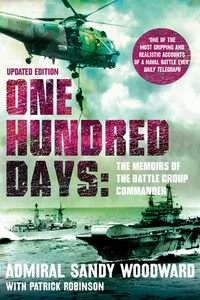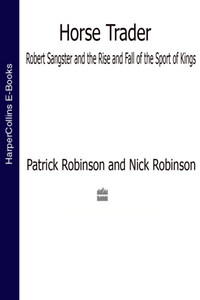HarperPress, an imprint of
HarperCollinsPublishers 77–85 Fulham Palace Road, Hammersmith, London W6 8JB
www.harpercollins.co.uk
First published in Great Britain by
HarperCollinsPublishers 1992
Copyright© Admiral Sir John Woodward and Patrick Robinson 1992, Diary
copyright© Admiral Sir John Woodward 2012
The Author asserts the moral right to be identified as the author of this work
All rights reserved under International and Pan-American Copyright Conventions. By payment of the required fees, you have been granted the non-exclusive, non-transferable right to access and read the text of this e-book on-screen. No part of this text may be reproduced, transmitted, downloaded, decompiled, reverse engineered, or stored in or introduced into any information storage and retrieval system, in any form or by any means, whether electronic or mechanical, now known or hereinafter invented, without the express written permission of HarperCollins e-books.
Source ISBN: 9780007218677
Ebook Edition © MARCH 2012 ISBN: 9780007390519
Version: 2014-12-11
It is not very easy to take a decision which commits your country to fight a war eight thousand miles from home. At such times it is impossible to clear the mind of the inevitable heartbreak of war – of all wars – and the grief of those families who suffer loss.
But on Friday, 2 April 1982, Argentina invaded the Falkland Islands.
On the previous Wednesday evening, John Nott, Secretary of State for Defence, had hurried into my study at the House of Commons, anxiety in his face, tenseness in his every movement. He told me that the Argentine Fleet had set sail, whether for another exercise or to invade the Falkland Islands, he knew not.
As the news hardened, I called several people together, ministers and advisers. If the islands were invaded, I knew exactly what we must do – we must get them back. Their people were our people. Their loyalty and devotion to Queen and Country had never faltered. As so often in politics the question was not, what should we do? But, how could it be done? The Falklands were three weeks’ sailing time away – three weeks’ warning to the enemy – the seas were inhospitable and there would be no British air base on land. The Chief of Defence Staff was in New Zealand on an official visit. Other advisers were not very optimistic about our chances. But appeasement? Britain? Never. Admiral Leach joined us.
‘First Sea Lord, if this invasion happens, precisely what can we do?’ I enquired. I shall never forget the quiet, calm, confident answer.
‘I can put together a Task Force of destroyers, frigates, landing craft, support vessels,’ he said. ‘It will be led by the aircraft carriers HMS Hermes and HMS Invincible. It can be ready to leave in forty-eight hours.’
Once again, the hour had produced the man. It was to produce many more throughout the campaign – Admiral Fieldhouse, whose warm humanity and sureness of touch never failed him or us; Admiral Lewin, Chief of Defence Staff, a tower of wisdom and strength; Admiral Woodward himself, who saw the risks, knew and felt every loss, and who raised morale day by day by day. There were many others, some known heroes, others whose valiant deeds are written on the scroll of life. Eventually we sent a hundred ships and twenty-five thousand men, but we were not to know that at the beginning.
The issue, from the start, was one of purest principle. Foreign governments all over the world waited, some of them anxiously, for our reaction. But British people, everywhere, knew there could be but one answer.
And, when finally the Royal Navy put the land forces ashore in Carlos Bay in the early hours of 21 May, one island farmer summed up, in a sense, what it is about us which so often sets this nation apart. Asked by an officer of the Parachute Regiment whether he was surprised to find the Task Force anchored in the Bay, the farmer replied, ‘No, not a bit. We knew Maggie would come.’
He said ‘Maggie’. But he meant Britain. He meant all of us. Because he knew that we, as a people, believe in the Rule of Law, in fair play and decency. We will not accept military hooliganism against us and I am perfectly certain that many small countries felt that much more secure when, in 1982, the British Lion again made his stand against a tyrant and for the rights of the citizens of the tiny, remote Falkland Islands.









